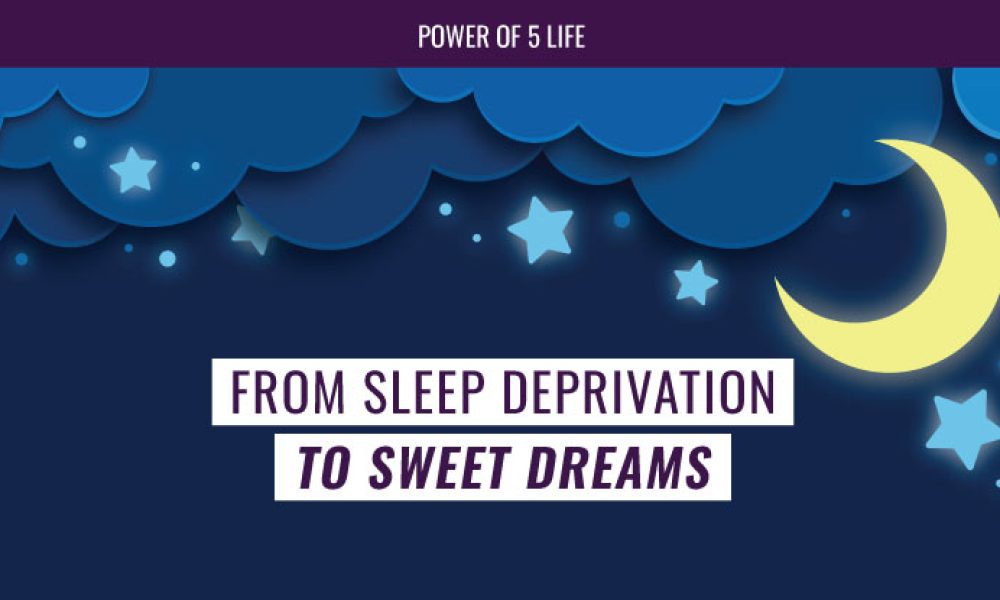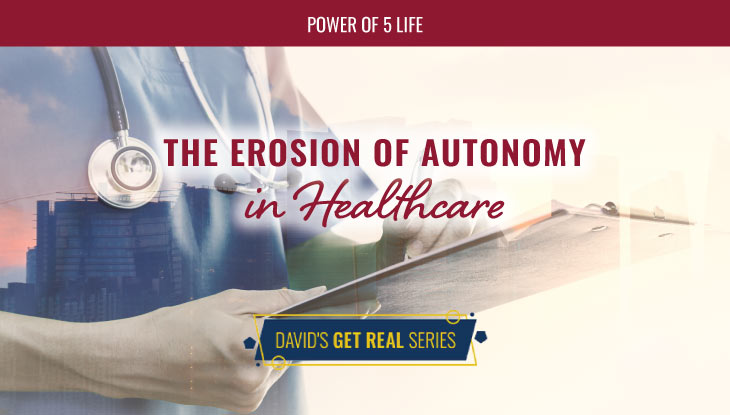From Sleep Deprivation to Sweet Dreams: Exploring the Journey to Better Sleep
Sleep is a fundamental biological process all humans experience, yet many of us don’t fully understand its intricacies or the vital role it plays in our overall health and well-being. It’s time to shed light on the mechanisms of sleep, including the role of our circadian rhythm, and why prioritizing quality sleep is essential.
For more than half of my life, I did not take sleep seriously. For that reason and based on how inadequate amounts of sleep affected the health of my own patients, I have become a major advocate for sleep hygiene. So much so, that I included it as a critical component in the Power of 5 formula.
I had long thought that there was a relationship between cicadas (the bugs that sing in the evening) and the circadian rhythm of our body’s daily cycle. My misunderstanding might have occurred during a dull, post lunch, noon conference as I dozed off when the subject was presented.
The word “circadian” might sound similar to “cicada,” but the two are unrelated. Cicadas are insects known for their periodic emergence (calibrated based on environmental cues), while circadian rhythms are a key regulator of our sleep-wake cycle (our internal body clock) found in all living things. This natural, roughly 24-hour cycle governs various physiological processes, including sleep.

The Science of Sleep
Sleep is not a passive state, but a complex process regulated by our brain and influenced by various factors such as light exposure, circadian rhythms, and even our diet. It’s divided into distinct stages, including light sleep, deep sleep, and REM (rapid eye movement) sleep, each with its own specific functions.
Why Sleep Matters
Sleep is not merely a time for rest; it’s when our bodies and minds undergo crucial restorative processes. Here are some key reasons sleep is so important:
- Physical Health: Sleep plays a vital role in repairing tissues, building muscle, and strengthening the immune system. (It is so important for all of us, especially competitive athletes.)
- Cognitive Function: Adequate sleep enhances memory, attention, and problem-solving abilities. (Therefore, college all-nighters are bad because without sleep, we cannot store the important information needed to succeed in an exam.)
- Emotional Well-being: Sleep deprivation can lead to irritability, mood swings, and an increased risk of mental health disorders. (Most of us have experienced what it feels like after a poor night of sleep.)
- Overall Health: Chronic sleep deprivation has been linked to a higher risk of chronic diseases like obesity, diabetes, and cardiovascular disease which are examples of inflammatory conditions addressed by the Power of 5.
Research has shown that inadequate sleep interferes with leptin, the neurochemical responsible for feeling full after meals. The consequence of this disruption is a reduced sense of fullness at mealtime and consequently overeating, weight gain, obesity, and chronic illnesses.
Timing of meals can have dramatic effects on sleep and behavior. One recent report suggests that in patients with Alzheimer’s disease, timing of meals will confer a favorable circadian rhythm, help set more healthy sleep schedules, and reduce the potential for sundowning in the evening.
Tips for Better Sleep
- Maintain a consistent sleep schedule: Go to bed and wake up at the same time each day, even on weekends. This helps regulate your circadian rhythm.
- Create a relaxing bedtime routine: Avoid screens before bed, take a warm bath, or read a book.
- Optimize your sleep environment: Ensure your bedroom is dark, quiet, and at a comfortable temperature.
- Address underlying sleep disorders: If you suspect you have a sleep disorder, consult a healthcare professional.
A Cornerstone of Good Health
Sleep is a cornerstone of good health. Understanding how sleep works, including the role of our circadian rhythm, and prioritizing quality sleep can lead to significant improvements in your physical health, cognitive function, emotional well-being, and overall quality of life.
To a long and healthy life,
David Bernstein, MD
P.S. My coauthor Venkit Iyer and I are thrilled to share that our updated Geriatrics Handbook has been awarded a Silver Medal by the Florida Authors and Publishers Association! This recognition is a testament to our commitment to providing accurate, up-to-date information for all adults as they age. We’re proud to offer this valuable resource to the community. Stay tuned for more insights and tips as we continue to explore the world of health and longevity. Grab your copy today on our online bookstore or on Amazon!
My blog content was generated by a human (David Bernstein) with the polishing aid of artificial intelligence.



